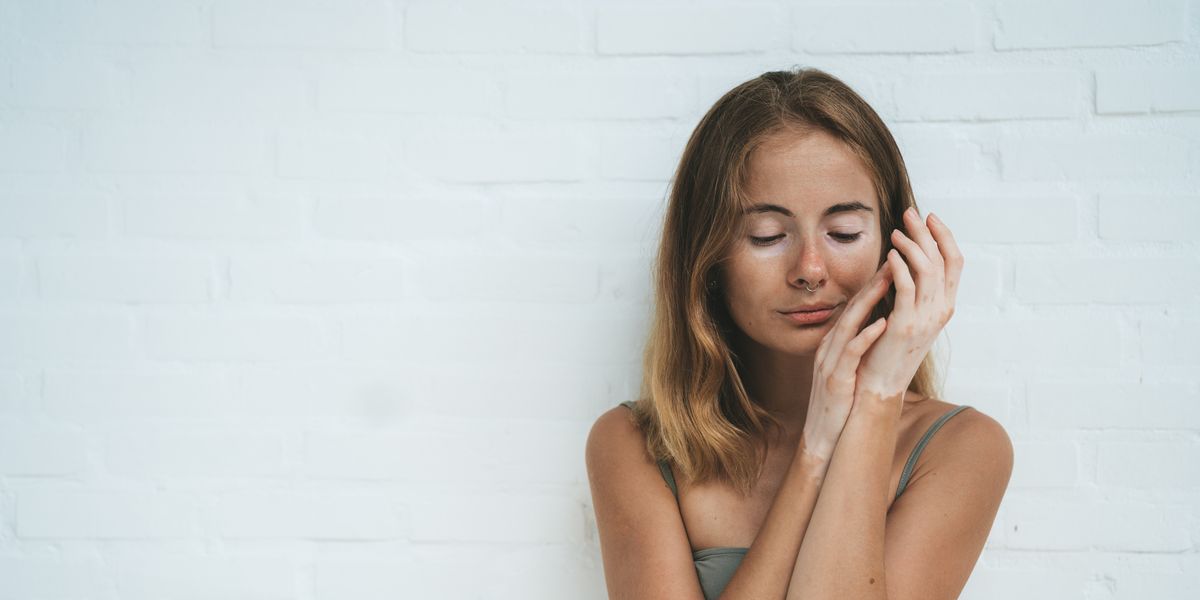
You will have heard a lot of times that ‘mens sana in corpore sana’. Well When we talk about skin, and beauty in general, it makes perfect sense to talk about mental health. Dermatologist Ricardo Ruiz says in his book ‘Antiaging, how to keep your skin younger’ (Roca Editorial) that in his youth, when he worked at the University of California (USA), he consulted with Dr. Koo, who In addition to being a dermatologist, he was a psychiatrist, and he saw people with skin diseases that produced psychological alterations. But they also treated patients with psychological or psychiatric conditions that caused dermatological lesions. Today we know that there is a relationship between the skin and the mind. “Skin and brain cells have a common origin in the development of the human embryo”, he points out.
“In addition, there is a clear biochemical relationship between the skin and the mind through substances such as adrenaline and other hormones. The skin and nervous system share neuromodulators that transport internal information, but we still have a lot to discover,” adds dermatologist Natalia Jiménez.
And the skin has a lot of nerve endings, which are connected to our brain. You just have to think about how your skin reacts to certain sensations. For example, when we feel shame, we turn red; when we are afraid, we turn pale; or in the face of an extraordinary emotion, one gets goosebumps. There are many skin diseases that originate or are aggravated by psychological problems such as depression. “Another example is the worsening that patients with psoriasis have when they are stressed,” says Ricardo Ruiz, director of the International Dermatological Clinic.
Depression and dull, fragile skin
According to the Spanish Association of Psychiatry, 40% of the Spanish population will suffer from anxiety at some point in their lives. And when this level of extreme worry is high and persistent it has effects on the skin, which explains the link it has with mental health. “It decreases our barrier function, causes dehydration, inflammation, irritation, fragility and sensitivity. It also increases the production of adrenaline and cortisol, causing the functioning of our hormonal system to become unbalanced, and as a result of this, acne outbreaks can occur due to greater production of the sebaceous glands,” explains Elisabeth Álvarez, master in Dermopharmacy and Cosmetic Formulation. .
This specialist, director of the INOUT center, also points out that The release of cortisol directly affects the collagen in the skinwhich means it can promote signs of premature aging, such as wrinkles.
“When we have a lot of nervousness sustained over time, histamine is also released, involved in the local responses of the immune system and which is related to skin allergies. This can cause outbreaks of atopic dermatitis or rosacea, among other conditions. Likewise, When the immune system is weakened, herpes and psoriasis appear”, Álvarez collects in his ‘Guide to intelligent beauty’ (Plataforma Actual).
And without going that far, being down or not having weakened mental health also has less important but visible consequences, because according to experts, blood circulation is altered and this results in duller and more reactive skin.
So being mentally ill causes skin problems, but the other way around also happens: your physical appearance can have consequences on your mental health. “There are some psychological diseases that are caused by skin diseases. An example would be the depression or insecurities of adolescents caused by acne,” confirms dermatologist Ricardo Ruiz.
Acne affects mental health
Dermatologist Natalia Jiménez elaborates on this topic, pointing out that we should not trivialize this skin and, at the same time, aesthetic problem: “It is not trivial to worry about skin problems and for them to affect us emotionally. From the outside it may seem like an unimportant topic. Many times it is the patient’s own environment that makes them think that: ‘Yes, what you have are two pimples… they will go away.’ It is true that acne is not going to kill us, but what do we know about its impact on mental health? There is numerous evidence that points to a depressed mood, low self-esteem and affectation in interpersonal relationships,” he explains in ‘Put yourself in your skin’ (Aguilar).
This specialist from Grupo Pedro Jaén points out that skin improvement is often associated with changes in self-esteem, quality of life and, therefore, mental health. “Dermatologists try to achieve this progress by prescribing cosmetic products, with medical options or physical means, such as lasers. Unfortunately, a given skin problem cannot always be completely alleviated. We see it very frequently in the case of vitiligo, where corrective makeup plays a very important role. With it, those white spots are camouflaged that, depending on where they are located, can cause complexes and greatly affect self-esteem and social relationships.”
Mental health and skin are closely connected. So much so that, as dermatologist Ricardo Ruiz recalls, Patients with stress usually lack the energy and motivation necessary to carry out proper skin care beauty routines. “They often exhibit harmful behaviors (compulsive scratching, rubbing, popping pimples…) that can worsen the skin problems that have arisen.” And, on the contrary, looking good, sometimes with minimally invasive aesthetic techniques, you can correct or improve something that troubles a person, such as a ridged nose, a scar, etc. and bring happiness and improve a person’s self-esteem and mental health. “Sometimes, modern dermatology can increase our quality of life more effectively than a psychotropic drug,” she says. In any case, all experts agree that we must avoid the search for perfection, which only causes frustration and can lead to dysmorphia.

Virginia de los Ríos is an expert in Beauty and Grooming, topics she regularly writes about in Cosmopolitan: facial creams, body cosmetics, hair treatments, cabin protocols, perfumes, new active ingredients… From Dior to Chanel, passing through Loewe, Sephora, Augustinus Bader or Cantabria Labs, closely follows the launches of brands in the beauty sector, from the most prestigious to niche brands or low-cost brands.
This journalist specialized in beauty and treatments – and who very few things would make her give up a satin red lipstick – is still passionate about, after 15 years writing about beauty, sneaking into cosmetic laboratories to learn how the most cutting-edge ingredients are developed. , uncover the bottle of the new essences and put my fingers in the cream jars. Before Instagram was an embryo, she created The New Millesime platform, with a board format, to publicize and analyze the latest in luxury cosmetics and lifestyle.
Virginia de los Ríos graduated in Hispanic Philology from the University of Deusto, later obtained a diploma in Book Editing and Publication from the same university and has a Master’s Degree in Journalism from the University of the Basque Country. She was a professor of Spanish Language and Literature for two years at the University of St. Andrews (Great Britain) and has more than two decades of experience as a journalist in different media, including some of the headlines HEARST, such as Elle, Cosmopolitan, Harper’s Bazaar, Men’s Health or Esquire. In addition, she has been editor-in-chief of Women’s Health and has collaborated in numerous editorial groups and relevant publications, such as Prisa, Unidad Editorial, El Semanal XL, MujerHoy, Yodona, Fuera de Serie, etc.

